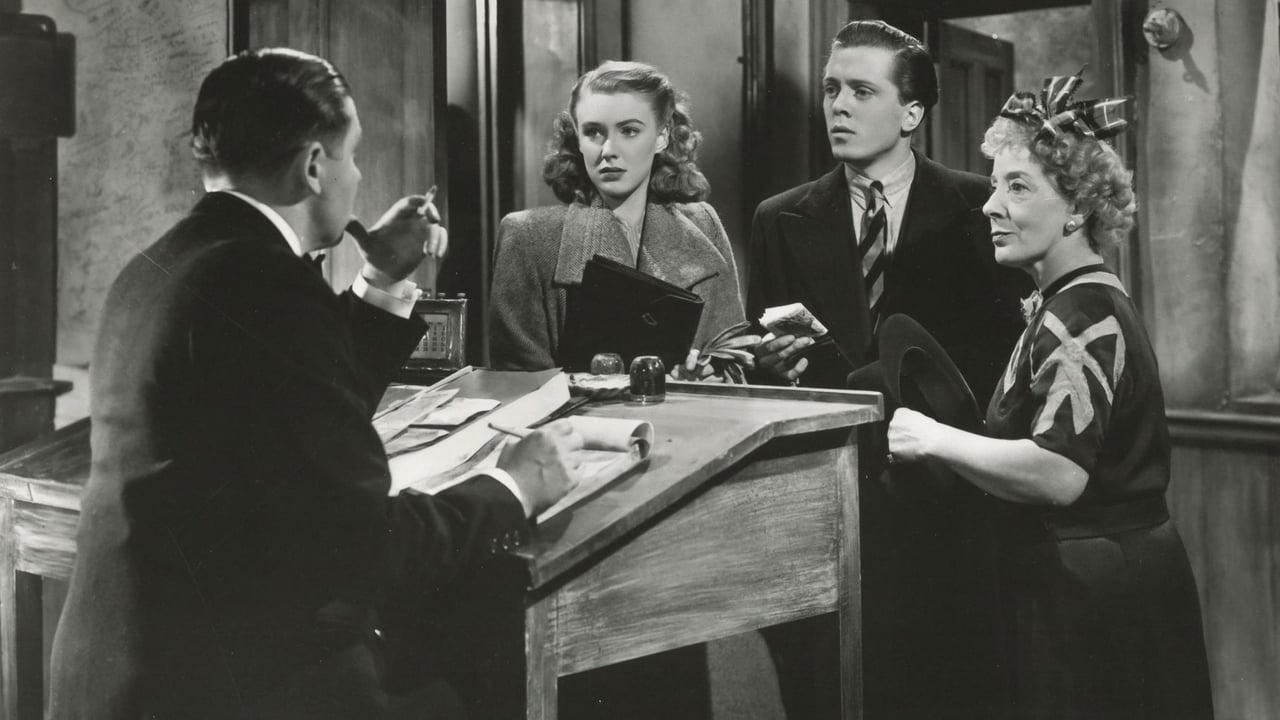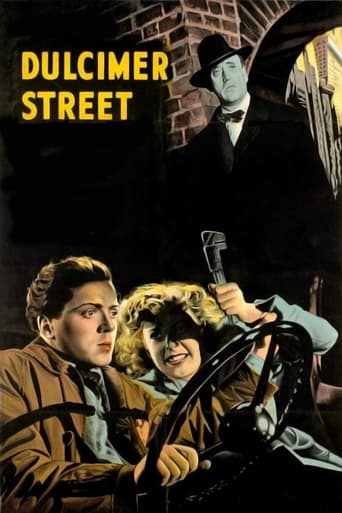

an ambitious but ultimately ineffective debut endeavor.
... View MoreI think this is a new genre that they're all sort of working their way through it and haven't got all the kinks worked out yet but it's a genre that works for me.
... View MoreIf you're interested in the topic at hand, you should just watch it and judge yourself because the reviews have gone very biased by people that didn't even watch it and just hate (or love) the creator. I liked it, it was well written, narrated, and directed and it was about a topic that interests me.
... View MoreThe movie really just wants to entertain people.
... View MoreMade in 1948, about 1938. Well, fashions hadn't changed that much, and landlady Joyce Carey, with her wonderful lace collars, is still living in the basement in 1918. For me, that's part of the appeal of films of this era - spotting the Victorian furniture and decor. Look at the Jossers' elaborate overmantel - and what would those etchings be worth now? At the time, all this Victoriana was a marker for people who couldn't afford anything new, and lived with the furniture provided. Back to the plot - it helps to understand Norman Collins's books. They are all like this: the story of a large cast of characters without an obvious hero or heroine. I have a confession to make: I like Richard Attenborough. He was good at playing criminals, spivs and wide boys. We know he's really middle class, we know he's now titled - but is that a reason to call him "bland", or address him as "Dickie boy"? What's that all about? Myrna (Eleanor Summerfield) went on to a career on the small screen. I agree with other reviewers about the odd way the film ends. The palaver about the petition goes on for too long. I suppose Collins wanted to send up earnest agitators, as well as silly spiritualists. The spiritualists come over as more sympathetic.
... View MoreThis odd little comedy/drama from Sidney Gilliat doesn't really hold a lot of water, but does hold a fair amount of charm, as the motley occupants of a London boarding house rally in support of one of their own, a young would-be spiv arrested for murder. As the youth in question Attenborough is pop-eyed, guilt-wracked and hapless, eerily resembling a young Peter Lorre-- we feel sorry for him, though we may not empathize much. But the film's emotional shadings come from the older actors like Wylie Watson, Fay Compton, and Joyce Carey (no, not the novelist), who stand by the boy simply because they know it's the right thing to do.The plot's barely there, but there's a lovely eccentric atmosphere to it all, and also a juicy supporting bit for the great Alastair Sim. Hilariously morose, with a strange and seedy profession, his Mr. Squales would provide inspiration some seven years later for Alec Guinness's great turn in The Ladykillers, down to the overbite and the lank, terrible hair. Sim was a few years away yet from being the UK's most popular film star; he was the weirdest and most watchable of screen idols. He walks away with the film.
... View MoreConfused postwar drama-come-comedy about an idiotic young man who gets involved in car theft and murder.Richard Attenborough plays a complete piker as the young man in a way that becomes really grating. Alastair Sim plays a dodgy geezer playing up to the landlady, in his usual creepy way but funny and appealing.The first part of the film is serious and then a last unnecessary half-hour is filled with a comic petition to reprieve the young man from the gallows (?).The film seems to be quite well made but the plot seems to look like it was made up of two different stories.
... View MoreWell, I was actually born in Liverpool, not London, but The Big Smoke is near and dear to my heart, and this film is a wonderful tribute to the city and its inhabitants. Set during 1938 and 1939, London Belongs to Me blends elements of film noir, comedy, drama, and even a smidgen of romance into its story of Percy Boon (Richard Attenborough), a young motor mechanic who finds himself embroiled in the death of a fun fair employee (Eleanor Summerfield). When Percy is found guilty of murder and sentenced to hang, the denizens of Dulcimer Street, led by lefty agitator Uncle Henry (the marvelous Stephen Murray), band together to plead for a reprieve. The final stirring scenes of the film follow the disparate band of Londoners--a cross-section of residents reflecting the cosmopolitan nature of the great metropolis--as they march to deliver their petition to the Home Office. Without giving away too much, the film is resolved in a fashion utterly alien to Hollywood cinema, as Uncle Henry and his friends--including the ineffectual but loyal Mr. Josser (Wylie Watson) and religious crank Headlam Fynne (Hugh Griffith) head off to the pub for a pint. If you, like me, have ever fallen in love with London, you will recognize many of the reasons for your passion in this marvelous and moving film, which has lost none of its power over the years.
... View More